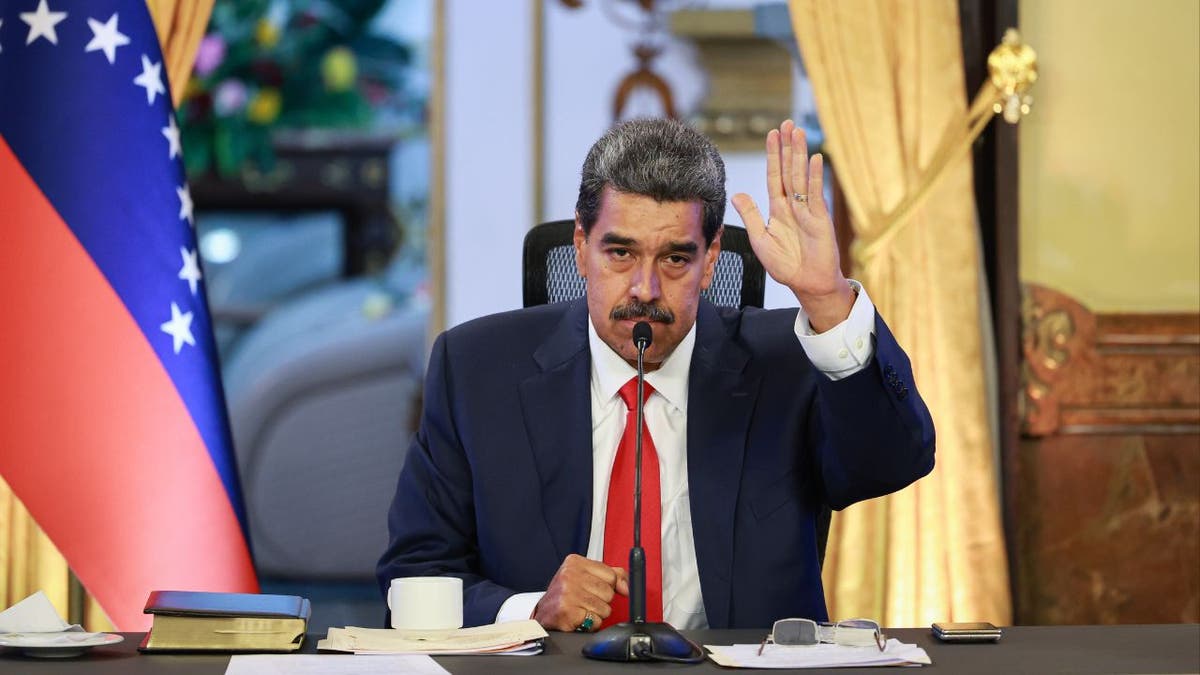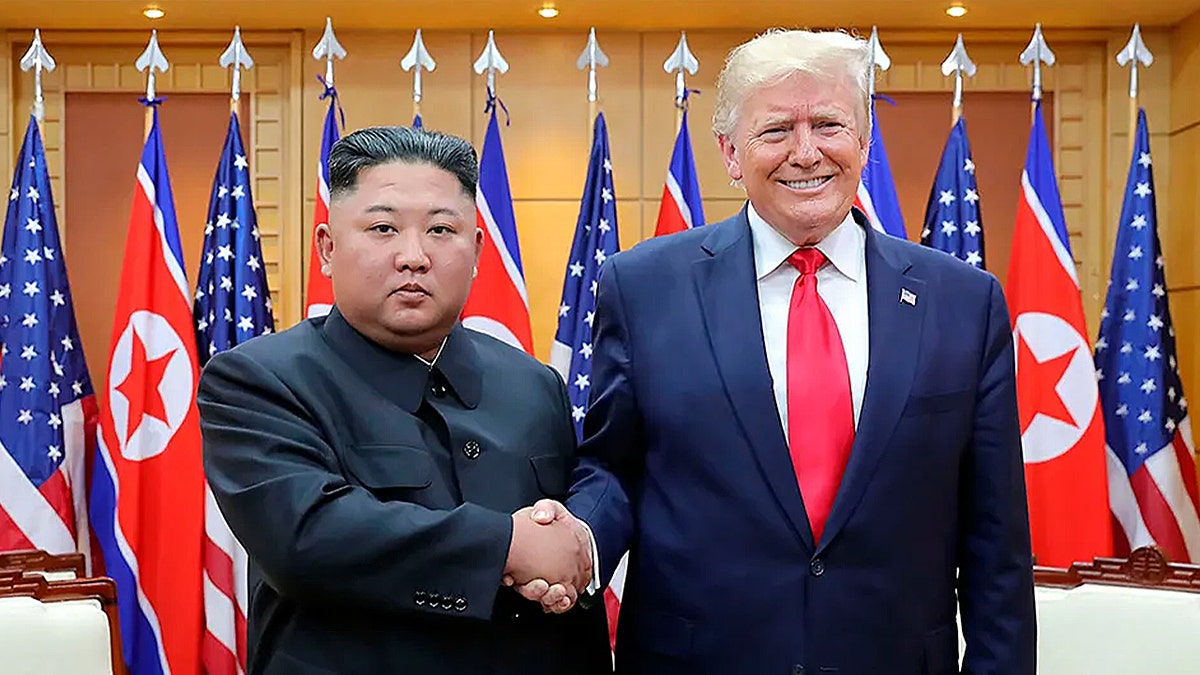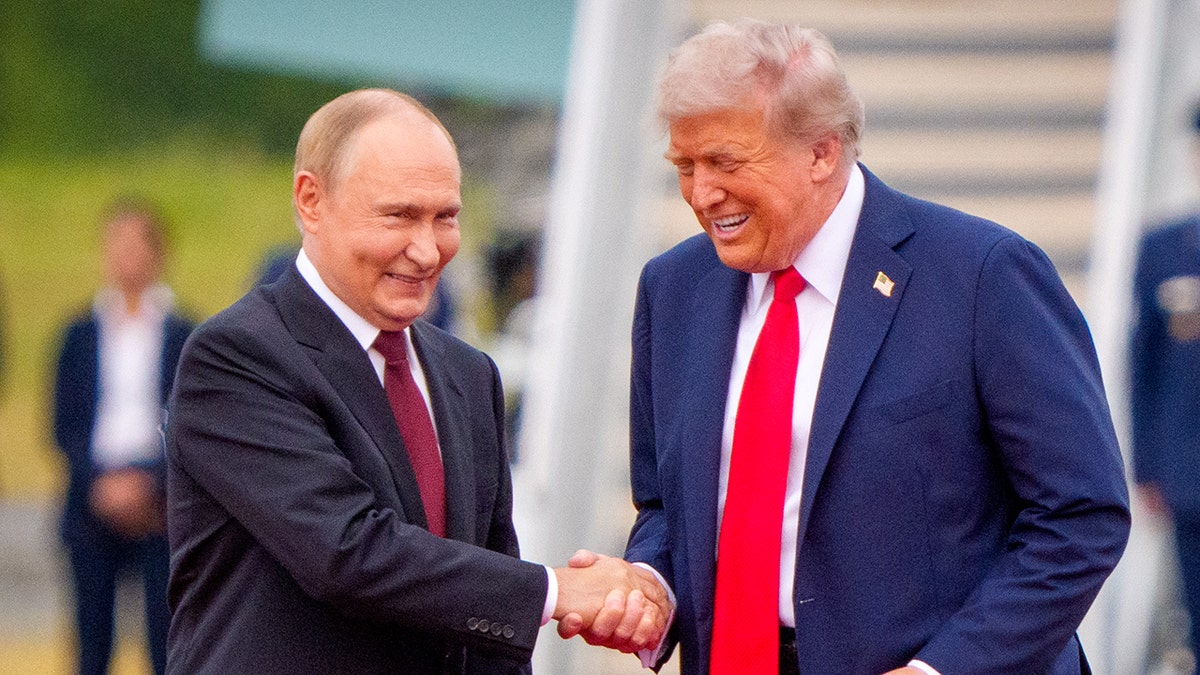NEWYou can now listen to Fox News articles!
President Donald Trump is keeping the world guessing about his next move in Venezuela — simultaneously labeling President Nicolás Maduro the head of a terrorist organization and hinting the U.S. may be open to talks with the Venezuelan leader.
The moment captures a familiar pattern in Trump’s foreign policy: blending threats and outreach to keep opponents uncertain of U.S. intentions. His allies say the ambiguity is leverage; critics call it improvisation that risks miscalculation.
“We may be having some conversations with Maduro, and we’ll see how that turns out. They would like to talk,” Trump told reporters over the weekend.
The comment came shortly after Secretary of State Marco Rubio designated Cartel de los Soles a foreign terrorist organization, a move that expands U.S. legal authorities to pursue Maduro and his inner circle under counterterrorism statutes — and potentially as military targets.
TRUMP AGREES MADURO’S DAYS AS VENEZUELA’S PRESIDENT ARE NUMBERED IN ‘60 MINUTES’ INTERVIEW

President Donald Trump is keeping the world guessing about his next move in Venezuela — simultaneously labeling Nicolás Maduro the head of a terrorist organization and hinting the U.S. may be open to talks with the Venezuelan leader. ( Jesus Vargas/Getty Images)
Trump suggested the designation allows the U.S. military to target Maduro’s assets and infrastructure inside Venezuela.
“It allows us to do that, but we haven’t said we’re going to do that,” the president said.
Days earlier, Trump had hinted he’d made up his mind about whether to start a direct conflict.
“I sort of have made up my mind — yeah. I mean, I can’t tell you what it would be, but I sort of have,” he said.
The U.S. now has more military assets in the region than it has in decades, topped off by the arrival of the world’s largest aircraft carrier, the USS Gerald R. Ford, on Sunday. The Department of War — the renamed Pentagon under Trump — has carried out 21 strikes on maritime targets allegedly carrying drugs toward the U.S.
Trump also said he doesn’t believe he needs congressional authorization to carry out the strikes.
TRUMP REVEALS MADURO ‘WOULD LIKE TO TALK’ AS MILITARY OPTIONS REMAIN ON THE TABLE FOR VENEZUELA
“We like to keep Congress involved. I mean, we’re stopping drug dealers and drugs from coming into our country. … We don’t have to get their approval. But I think letting them know is good,” he said.
“Headed by the illegitimate Nicolás Maduro, the group has corrupted the institutions of government in Venezuela and is responsible for terrorist violence conducted by and with other designated FTOs as well as for trafficking drugs into the United States and Europe,” Rubio posted on X about the new designation.
The ambiguity surrounding Venezuela is the latest instance of Trump’s unpredictable approach to foreign policy — a hallmark that has kept allies and adversaries uncertain of U.S. intentions for years.
TRUMP TOUTS ‘12 OUT OF 10’ MEETING WITH XI, DOWNPLAYS REPORTS OF VENEZUELA STRIKES
Trump’s remarks fit a familiar pattern: publicly signaling both confrontation and conciliation in ways that leave world leaders guessing about his next move. Since his first term, he has used such ambiguity to keep counterparts off balance — a strategy that has, at times, produced diplomatic breakthroughs and, at others, strategic confusion.
In 2017, Trump threatened North Korea with “fire and fury” before pivoting months later to a summit with Kim Jong Un in Singapore — the first direct meeting between U.S. and North Korean leaders.

In 2017, Trump threatened North Korea with “fire and fury” before pivoting months later to a summit with Kim Jong Un in Singapore — the first direct meeting between U.S. and North Korean leaders. (KCNA via AP )
In 2018, his shifting public tone on the killing of journalist Jamal Khashoggi — alternating between defending and condemning Saudi Arabia’s leadership — again confounded U.S. partners. The following year, his abrupt decision to pull U.S. forces from northern Syria stunned both advisors and allies.
His stance on the Russia–Ukraine war has been similarly mercurial. At times, Trump has called Ukrainian President Volodymyr Zelenskyy a “dictator” and railed against continued U.S. aid to Kyiv.
At others, he has mused that Vladimir Putin “played” him and floated plans to sell American weapons to Ukraine through allied funding — a swing that left officials in Washington and Europe unsure whether Trump intends to end the war through pressure or compromise.

Trump has mused that Vladimir Putin “played” him and floated plans to sell American weapons to Ukraine through allied funding — a swing that left officials in Washington and Europe unsure whether Trump intends to end the war through pressure or compromise. (Andrew Harnik/Getty Images)
Most recently, in mid-2025, Trump entered indirect talks with Tehran over sanctions relief and regional de-escalation before ordering surprise airstrikes on Iranian nuclear sites — a reversal that underscored his tendency to keep adversaries guessing about U.S. red lines.
And on Tuesday — five months after the strikes and over seven years since he pulled the U.S. out of the 2015 Iran deal – Trump again suggested he would be open to talking with Iran about a potential deal on its nuclear ambitions.
“I am totally open to it,” he said.
CLICK HERE TO DOWNLOAD THE FOX NEWS APP
Trump’s relationship with China has followed the same whiplash rhythm. He has threatened massive new tariffs and warned of “total decoupling,” only to later describe President Xi Jinping as a “great friend,” tout Beijing as a partner in fighting drugs and stabilizing markets and promise to expand student visas for Chinese students.
Whether Venezuela becomes the next stage for Trump’s blend of diplomacy and deterrence remains uncertain — which, for Trump, may be precisely the point.